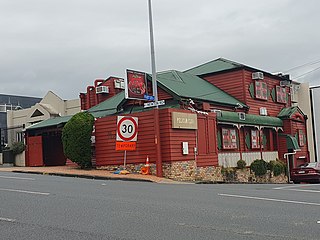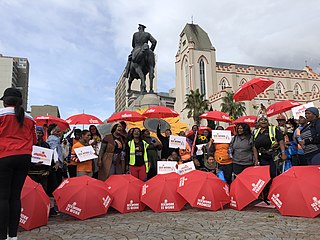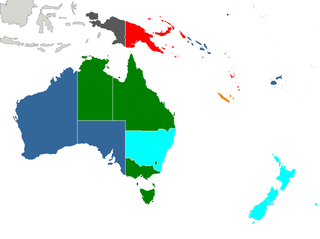
The Aotearoa New Zealand Sex Workers' Collective (NZPC), formerly the New Zealand Prostitutes' Collective, is a New Zealand-based organisation that supports sex workers' rights and educates sex workers about minimising the risks of the job.

Prostitution in New Zealand, brothel-keeping, living off the proceeds of someone else's prostitution, and street solicitation are legal in New Zealand and have been since the Prostitution Reform Act 2003 came into effect. Coercion of sex workers is illegal. The 2003 decriminalisation of brothels, escort agencies and soliciting, and the substitution of a minimal regulatory model, created worldwide interest; New Zealand prostitution laws are now some of the most liberal in the world.

Georgina Beyer is a New Zealand politician and former Labour Party Member of Parliament. In 1995 she was elected mayor of Carterton, making her the world's first openly transgender mayor. In 2005 she became the world's first openly transgender Member of Parliament. She is also among a very small number of former sex workers to hold political office.

In Great Britain, the act of engaging in sex as part of an exchange of various sexual services for money is legal, but a number of related activities, including soliciting in a public place, kerb crawling, owning or managing a brothel, pimping and pandering, are illegal. In Northern Ireland, which previously had similar laws, paying for sex became illegal from 1 June 2015.
The English Collective of Prostitutes (ECP) is a campaigning group which supports the decriminalisation of prostitution, sex workers' right to recognition and safety, and the provision of financial alternatives to prostitution so that no one is forced into prostitution by poverty. The group works against the social stigma that is associated with prostitution, and the poverty that is sometimes its cause. It provides information, help, and support to individual prostitute women and others who are concerned with sex workers' rights, civil, legal, and economic rights. The organisation was founded in 1975, and its first spokeswoman was Selma James.
Prostitution in Ireland is legal. However, since March 2017, it has been an offence to buy sex. Third party involvement is also illegal. Since the law that criminalises clients came into being, with the purpose of reducing the demand for prostitution, the number of prosecutions for the purchase of sex increased from 10 to 92 between 2018 and 2020. In a report from UCD's Sexual Exploitation Research Programme the development is called ”a promising start in interrupting the demand for prostitution.”
Prostitution in Denmark was partly decriminalised in 1999, based partly on the premise that it was easier to police a legal trade than an illegal one. Third-party activities, such as profiting from brothel administration and other forms of procuring, remain illegal activities in Denmark, as do pimping and prostitution of minors.

Prostitution or sex work in Australia is governed by state and territory laws, which vary considerably. Federal legislation also affects some aspects of sex work throughout Australia, and of Australian citizens abroad.
Prostitution in South Africa is illegal for both buying and selling sex, as well as related activities such as brothel keeping and pimping. However, it remains widespread. Law enforcement is poor.

The Prostitution Reform Act 2003 is an Act of Parliament that decriminalised prostitution in New Zealand. The act also gave new rights to sex workers. It has attracted international attention, although its reception has been mixed. The Act repealed the Massage Parlours Act 1978 and the associated regulations.
Prostitution in Zimbabwe and related acts, including solicitation, procuring, and keeping a brothel, are illegal but thriving. Zimbabwe's dire economic situation has forced many women into sex work.
The World Charter for Prostitutes' Rights is a declaration of rights adopted in 1985 to protect sex workers' rights worldwide. It was adopted on 15 February 1985 at the first World Whores Congress in Amsterdam by the newly formed International Committee for Prostitutes' Rights (ICPR). The Charter established a human rights-based approach to prostitution, demanding that sex workers be guaranteed freedom of speech, travel, immigration, work, marriage, motherhood, health, and housing, amongst other things. This approach has subsequently been further elaborated by the sex workers' rights movement.
Prostitution in Scotland has been similar to that in England under the State of Union, but since devolution, the new Scottish Parliament has pursued its own policies.
Melissa Farley is an American clinical psychologist, researcher and radical feminist anti-pornography and anti-prostitution activist. Farley is best known for her studies of the effects of prostitution, trafficking and sexual violence. She is the founder and director of the San Francisco-based organization, Prostitution Research and Education.

Dame Catherine Winifred Harcourt, known professionally as Kate Harcourt, is a New Zealand actress. Over her long career she has worked in comedy as well as drama in theatre, film, TV and radio.

The decriminalization of sex work is the removal of criminal penalties for sex work. Sex work, the consensual provision of sexual services for money or goods, is criminalized in most countries. Decriminalization is distinct from legalization.
Sex Industry Network is a peer-based, not for profit organisation, funded by SA Health, a South Australia government organisation. Its aim is to maintain low rates of sexually transmitted infections (STIs), blood borne viruses (BBVs) and HIV among sex workers and their clients in South Australia.

Prostitution in Oceania varies greatly across the region. In American Samoa, for instance, prostitution is illegal, whereas in New Zealand most aspects of the trade are decriminalised.

Dame Patricia Lee Reddy is a New Zealand lawyer and businesswoman who served as the 21st governor-general of New Zealand from 2016 to 2021.

Roberta Perkins was an Australian sociologist, writer, and transgender rights and sex worker rights activist. She wrote several books and multiple academic articles on the semi-nomadic lives of transgender sex workers, and established the first assistance center for transgender people in Australia.











